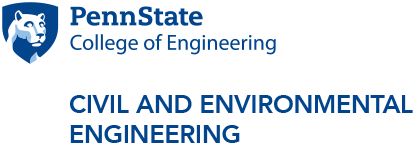
Transportation Engineering
The movement of people and goods is a basic function necessary for the economic, social, and political well-being of all nations. Today's civil engineer is responsible for the planning, design, construction, operation, maintenance, and administration of various transportation systems. These systems include many different modes such as highway, rail, and transit. The goal of the academic and research programs in transportation engineering is to provide a sound theoretical and practical understanding of transportation engineering systems.
Program Requirements
Master of Engineering Degree
12 credits of Core Curriculum
9 credits of Transportation Electives
9 credits of Technical Electives
Master of Science Degree
6 credits of thesis research (CE 600)
12 credits of of coursework in major field (400- or 500-levels with CE prefix)
18 credits course work at 500- and 600-levels (CE prefix)
Doctorate Degree
For the Ph.D. degree, a minimum of 30 credits are suggested. A plan to complete coursework associated with the research skills necessary for the Ph.D.
Courses Offered
Transportation coursework focuses on transport system planning, geometric design, traffic engineering, transportation safety, and the maintenance and operation of transportation facilities. The program also uses a multidisciplinary approach to ensure that students have a broad knowledge base to help solve the wide range of problems that face transportation engineers.
Core Curriculum
C E 421W - Transportation Design
C E 525 - Transportation Operations
C E 526 - Highway and Street Design
C E 527 - Roadside Design and Management
C E 528 - Transportation Safety Analysis
Transportation Electives
C E 422 - Transportation Planning
C E 423 - Traffic Operations
C E 59X - Independent Studies & Special Topics - offered on a semester basis
Because of the vastness of the transportation network and its users, graduate students may wish to take courses beyond the traditional transportation coursework offered in the Department. These courses are intended to complement the curricular requirements and may include 400- or 500-level courses in the following Departments:
Economics
Geography
Industrial Engineering
Information Science and Technology
Mechanical Engineering
Psychology
Supply Chain and Information Systems
Statistics
Transportation Requirements



